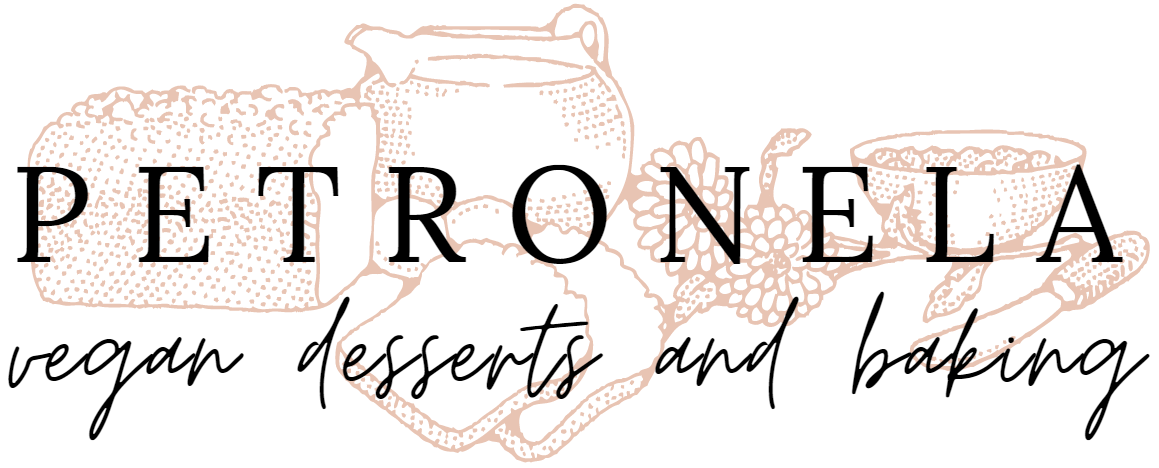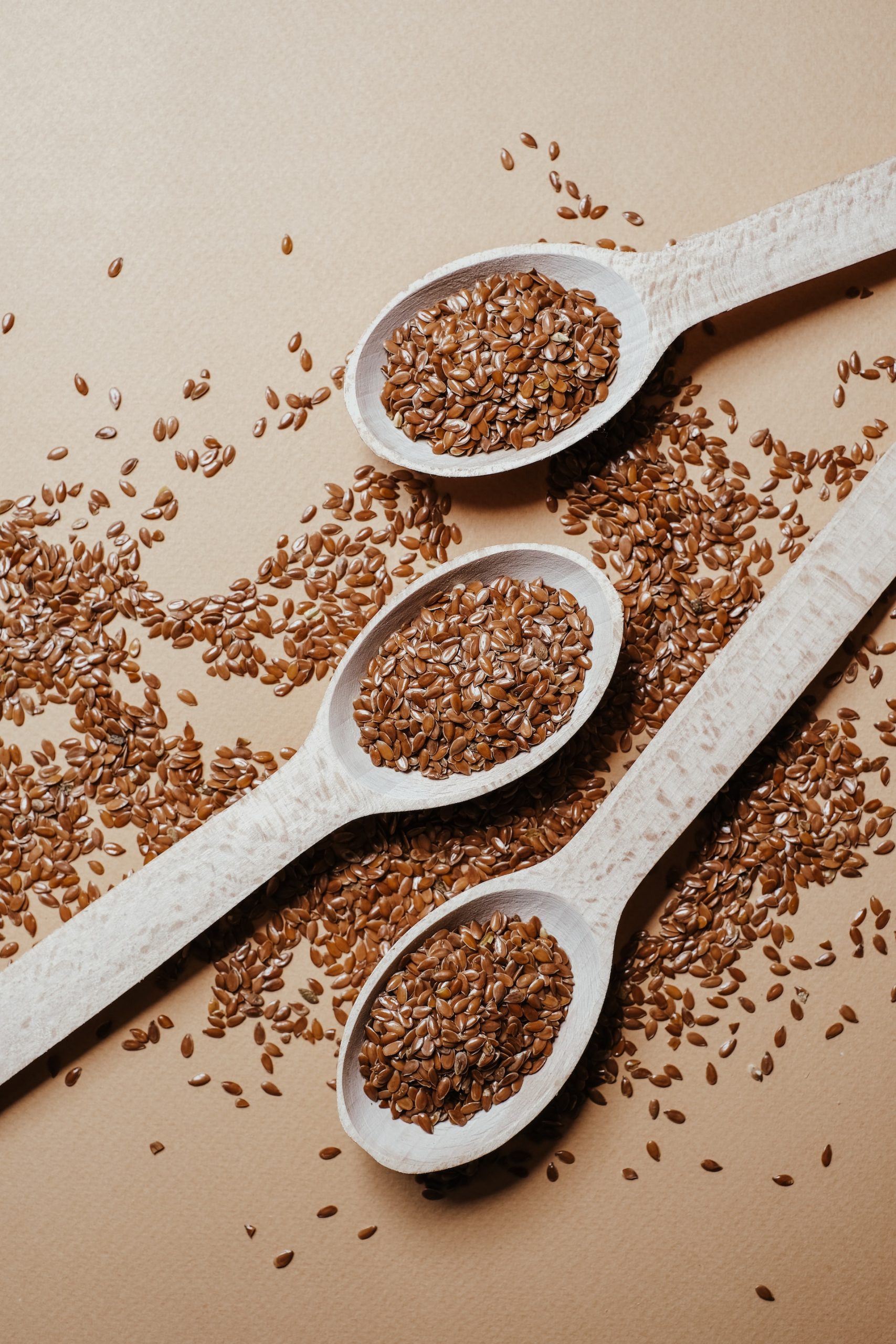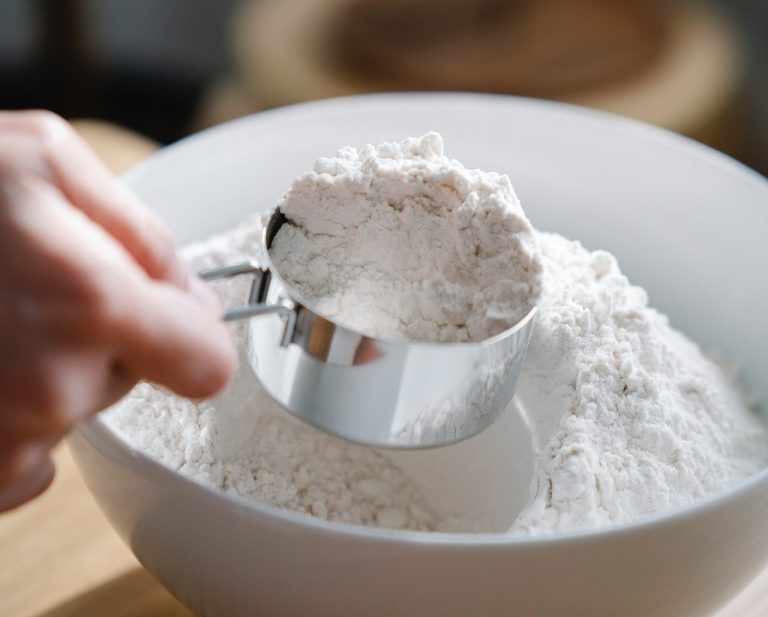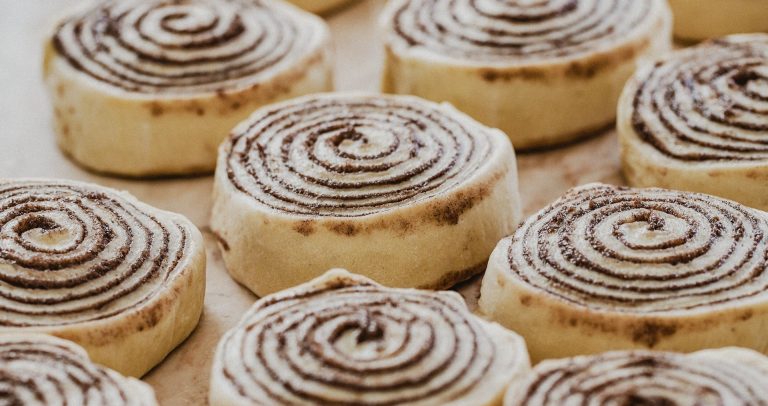Whether you’re vegan or have an egg allergy, egg replacements are necessary to achieve the best possible results in baking, whether it be a perfectly fluffy cake, a creamy custard, or a chewy cookie. Learn about the different egg substitutes and their best uses to make any recipe egg-free.
While these egg substitutes will help you vegan-ize nearly any recipe, please keep in mind that there are a few cakes and desserts that are near impossible to replicate because they rely heavily on eggs for structure, taste, or texture, such as angel food cake or flourless chocolate cake.
It’s also important to remember that there’s no “one-size fits all” when it comes to egg replacements. Different egg replacements have different functionality. For example, aquafaba is amazing for recipes that require a lot of air, like meringue or pancakes, while tofu is great for creaminess and will likely yield disappointing results when added to a light sponge cake.
Be sure to know what function the eggs play in your recipe before trying to replace them.
Aquafaba
The liquid found in a tin of chickpeas or garbanzo beans is known as aquafaba and is a common egg replacer in vegan baking. Generally used in place of egg whites, this viscous liquid is a staple in any vegan kitchen.
Aquafaba is most often used in soft cakes, meringue, macarons, frosting, and mousse, as it’s main function is to add air to bakes goods and chilled desserts when whipped. A great thing about aquafaba is that it has minimal taste, so you won’t be able to taste it in the finished product, unlike a few egg substitutes on this list.
Pro tip: Adding only 1/4 teaspoon cream of tartar to your aquafaba before whipping it will make the foam last a lot longer and yield a fluffier and lighter crumb to cakes or muffins.
3 tbsp aquafaba = 1 whole egg (but mostly used as egg white replacement).
Ground Flaxseeds
Ground flaxseeds are a very healthy addition to your baked goods, as they add a high amount of protein, omega-3 fatty acids, and fibre. They also have a subtle nutty flavour and works as a great egg replacement thanks to their binding properties.
Best used for cakes, brownies, cookies, pie crusts, and pancakes, as they will give cookies and brownies a chewy texture while adding moisture and tenderness to soft cakes.
Keep in mind that flaxseeds have a hard shell, and it’s the inside of the seed that provide the gelatinous texture that mimics the consistency of eggs, so the more finely ground, the better.
The best thing about using ground flaxseeds in baking is their versatility; you can use them in a wide range of recipes. A big con, however, is that adding too much can weigh down soft cakes and brownies, making them chewy and giving them a gummy-like texture. And depending on what kind of flaxseeds you use, they can add a slightly unpleasant nutty taste to your baked goods.
Pro tip: Keep in mind there are two types of flaxseeds you can buy: golden and brown. The golden ones have a more subtle flavour than the brown ones, which many prefer, as the taste of flaxseeds is very distinct and disliked by some.
1 tbsp ground flaxseeds + 3 tbsp water = 1 whole egg. Mix together and let sit for 5-10 minutes until the mixture thickens and becomes gelatinous.
Chia Seeds
Similar to ground flaxseeds, chia seeds are a healthy egg substitute full of omega-3 fatty acids, protein, and fibre.
Best used for quick breads, muffins, cakes, cookies, waffles, jam, and pudding – chia seeds are very versatile in the baking and dessert world. One thing to keep in mind, however, is that chia seeds are crunchy, so they will add a little texture to any baked goods unless it contains pieces of fruit, chopped nuts, or oats, where the chia seeds will go unnoticed. So if you’re using chia seeds in soft cakes or brownies, you will probably be able to tell.
That being said, however, they have a very subtle taste, so they won’t impact the flavour of your baked goods.
1 tbsp chia seeds + 3 tbsp water = 1 whole egg. Let it sit for at least five minutes before using it in your recipe.
Mashed Banana
A ripe, mashed banana is one of my favourite egg replacements. It acts as a binding agent and adds some sweetness to your baked goods, so you can easily cut down on the refined sugar if you so wish. Its creaminess and moisture add a light and spongy texture to things like cake, muffins, pancakes, and quick bread (banana bread, anyone?)
Keep in mind, however, that banana will have an effect on the taste of your baked goods. Actually, banana is often used in baking because of the added flavour, so it isn’t necessarily a bad thing.
When it comes to using banana in baked goods, the riper, the better. You don’t want to use a banana with green skin, as it will be too underripe and have less moisture, giving your baked goods a dry, starchy texture. Generally, a banana with some brown spots is your best option.
1/2 large banana or 1 medium banana = 1 whole egg.
Applesauce
Applesauce has the same benefits as banana in baking. It will add moisture and a some structure to your baked goods, but it will also leave a very faint taste to your cakes. If you don’t mind the added sweetness and hint of apple to your baking, applesauce might be a great option for you.
It’s best used for cakes, muffins, brownies, pancakes, and quick breads, and the naturally occurring sugar in apples mean you can easily cut down on a portion of the refined sugar in your recipe.
The advantages and disadvantages of using applesauce in baked goods are similar to those of using bananas. It can change the taste slightly of what you’re baking, which might not be a bad thing, depending on how much you use and your personal preferences.
But it can also weigh your cake down a bit, possibly making it more suitable for muffins, brownies, or pancakes instead of fluffy and fragile cakes.
Pro tip: Puréed fruit will sometimes make your cakes and muffins slightly dense so make sure to contrast this by adding an additional ¼ or ½ teaspoon of baking powder to your recipes if that’s something you’re worried about.
4 tbsp applesauce = 1 whole egg.
Silken Tofu
Available in various forms, soybean curds – also known as tofu, can work great as an egg substitute in certain recipes. Silken tofu is most often used in desserts, as it has the highest moisture content and is very soft. It’s commonly used in both savoury and sweet vegan recipes due to its high protein and moisture content.
Silken tofu is best used for creamy desserts such as tiramisu, pudding, pies, or cheesecake, but it can also add moisture to baked goods such as quick breads and brownies.
Pro tip: remember that tofu tends to be quite dense and heavy, so only use it in recipes where creaminess or moisture is the desired result. You might want to add ½ teaspoon of baking powder when using it in soft cakes.
4 tbsp silken tofu = 1 whole egg.
Potato starch or cornstarch
I know what you’re probably thinking. “How can potato starch possibly work as an egg substitute?” Well, let me tell you.
The egg replacers we’ve gone over thus far are great for replacing specifically egg whites and whole eggs in chilled desserts and baked treats, but what about cooked desserts?
If you’re setting a pudding or thickening something like a lemon curd or custard, potato starch, or cornstarch are perfect substitutes. When cooked, they will act as a thickening agent without making the texture gritty or adding an unpleasant taste to the finished product.
It also works perfectly in recipes to add stability to your soft cakes. I love substituting a small amount of flour in cakes, cupcakes, and certain biscuit recipes with potato starch or cornstarch to give them a deliciously soft and fluffy or delicate texture that melts in your mouth.
1.5 tbsp starch + 3 tbsp water = 1 whole egg.
Apple Cider Vinegar
This ingredient alone won’t do much for your baking in terms of replacing eggs, but it’s a staple in any vegan kitchen and used in almost any egg-free recipe as it will help your cakes, pancakes, and cupcakes rise.
Using between 1-3 teaspoons of apple cider vinegar in your recipe, along with baking soda or baking powder, will give a boost to your cakes and help your baked goods rise in the same way an egg would. It’s perfect for getting a light, fluffy, and springy texture, which you often want when making cupcakes, pancakes, cakes, or other soft treats.
And since you use such a small amount in any recipe, the strong and unpleasant taste of apple cider vinegar will often go unnoticed.
It’s also a perfect way to make vegan buttermilk, which is often used in scones, quick breads, chocolate cakes, and more. Simply add one to three teaspoons of apple cider vinegar to your plant-based milk and let sit for ten minutes before using. During this time, the milk will start to curdle – which is exactly what you want!
Commercial Replacers
This list would be incomplete without mentioning commercially produced replacers. There are a lot of egg substitutes you can buy, both in liquid form and powder form, made specifically to replace eggs in baking and cooking. They are often made with ingredients such as cornstarch, tapioca flour, psyllium husk fibres, and baking soda. Simply follow the instructions on the packaging and enjoy!




